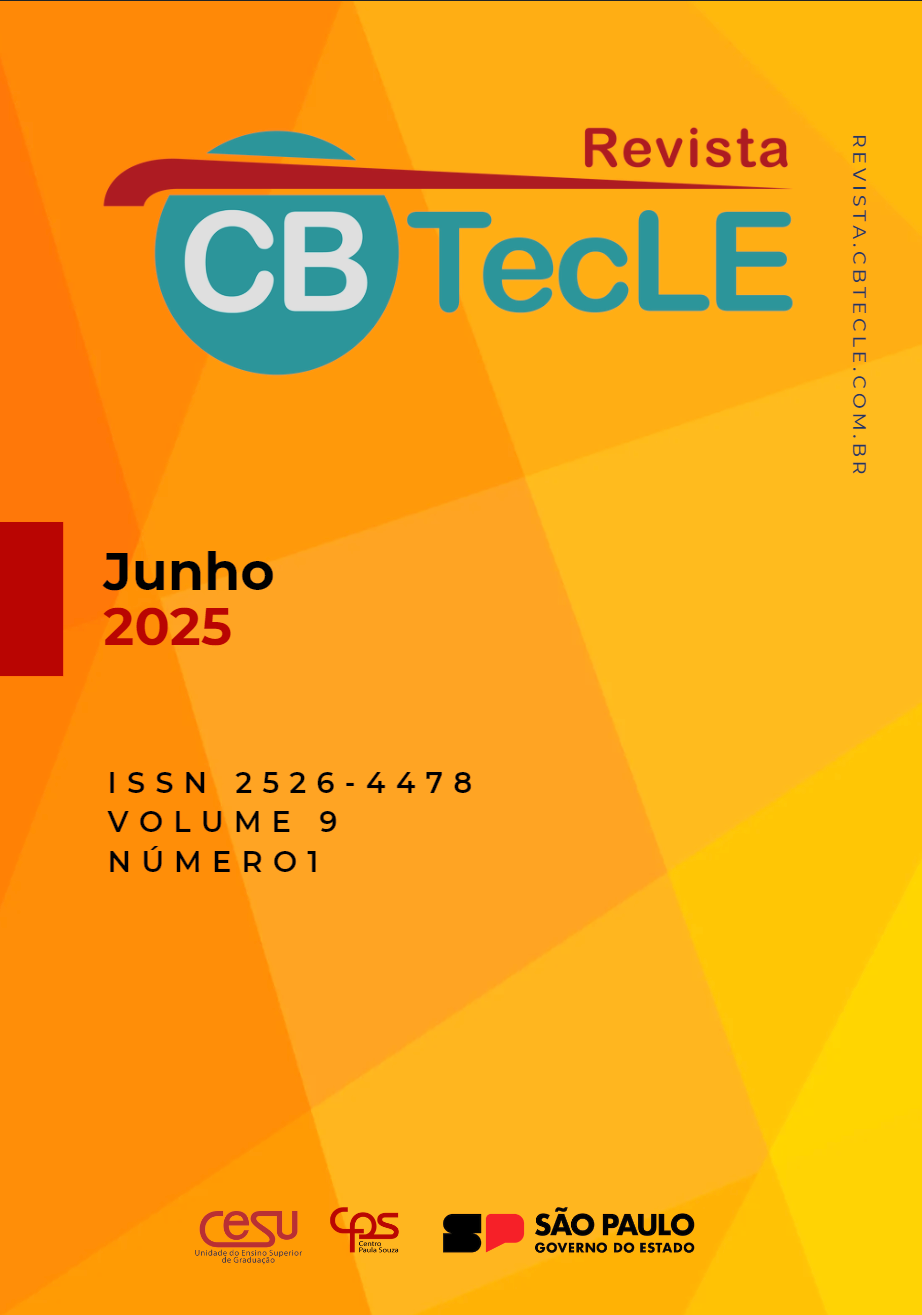ENSINAR EM TEMPOS DE INCERTEZA: A REINVENÇÃO DA PRÁTICA DOCENTE EM LÍNGUA INGLESA SOB A PERSPECTIVA DA COMPLEXIDADE, DA MEDIAÇÃO E DA INSPIRAÇÃO PEDAGÓGICA
Keywords:
Ensino de línguas em contexto remoto, Mediação pedagógica, Ensino Inspirador, Docência de línguasAbstract
This article critically examines the reinvention of English language teaching practices in higher education during the Covid-19 pandemic, through the lens of complexity theory and critical applied linguistics. Drawing on the works of Vygotsky, Freire, Miccoli, Mercer, van Lier, Almeida Filho, among others, the discussion frames teaching as a situated, affective, and mediational act, emphasizing that remote education represented not a mere technical adaptation, but an ethical and pedagogical reconstruction of the educational bond. Pedagogical strategies such as flipped classrooms, formative assessment, and empathetic listening are analyzed as means to foster learner autonomy, meaningful engagement, and the development of cognitive and socioemotional competences. Teaching experience is recognized as a legitimate source of pedagogical knowledge and as a catalyst for critical reflection, creativity, and curricular transformation. The findings indicate that human mediation, pedagogical inspiration, and affective connection were essential in sustaining language learning under uncertain conditions. Ultimately, the study points to the need for a more humanizing, reflective, and ethically engaged language pedagogy committed to the holistic development of learners.
References
ALMEIDA FILHO, José Carlos Paes de. Dimensões comunicativas no ensino de línguas. Campinas: Pontes, 1999.
______________________________. Português para estrangeiros: ensino e aprendizagem. Campinas: Pontes, 2017.
BERGMANN, Jonathan; SAMS, Aaron. Sala de aula invertida: uma metodologia ativa de aprendizagem. Rio de Janeiro: LTC, 2018.
BRASIL. Ministério da Educação. Base Nacional Comum Curricular (BNCC). Brasília: MEC, 2018. Disponível em: https://basenacionalcomum.mec.gov.br. Acesso em: 1 maio 2025.
DEWEY, John. Experience and education. New York: Macmillan, 1938.
DÖRNYEI, Zoltán. Research methods in applied linguistics: quantitative, qualitative, and mixed methodologies. Oxford: Oxford University Press, 2007.
FREIRE, Paulo. Pedagogia da autonomia: saberes necessários à prática educativa. 36. ed. São Paulo: Paz e Terra, 1996.
GILES, David L. Exploring the teacher-student relationship in teacher education: a hermeneutic phenomenological inquiry. Saarbrücken: VDM Verlag, 2008.
JENSEN, Emily; ADAMS, Jean; STRICKLAND, Kimberly. The inspirational teacher: a study of pre-service teachers’ beliefs. College Student Journal, v. 48, n. 1, p. 39–50, 2014.
KOLB, David A. Experiential learning: experience as the source of learning and development. Englewood Cliffs: Prentice Hall, 1984.
LIMA, Rafaela dos Santos. Ação docente e motivação no ensino de inglês em escolas públicas e particulares. 2014. Dissertação (Mestrado em Linguística Aplicada) – Faculdade de Letras, Universidade Federal de Minas Gerais, Belo Horizonte, 2014.
LUCKESI, Cipriano Carlos. Avaliação da aprendizagem escolar: estudos e proposições. 23. ed. São Paulo: Cortez, 2011.
MACEDO, Lino de. Ensinar e aprender: uma relação que se renova. Porto Alegre: Artmed, 2002.
MARCELO, Carlos. Desenvolvimento profissional docente: passado e futuro. In: NÓVOA, António (Org.). Os professores e a sua formação. Lisboa: Dom Quixote, 1992. p. 47–91.
MERCER, Sarah. Understanding learner agency as a complex dynamic system. System, v. 39, n. 4, p. 427–436, 2011.
MICCOLI, Laura. Experiência como unidade de análise de pesquisas sobre ensino e aprendizagem de línguas. In: ROJO, Roxane; BARBARA, Leila; RAMOS, Rogério (Org.). Linguística aplicada: ensino e aprendizagem de línguas estrangeiras. Campinas: Mercado de Letras, 2010. p. 29–62.
_____________. Taxonomia da experiência: uma proposta para análise de narrativas de ensino e aprendizagem. In: CELANI, Maria Antonieta A. (Org.). Ensino e aprendizagem de línguas estrangeiras: avaliação e experiências. Campinas: Mercado de Letras, 2007. p. 11–46.
MORAN, José Manuel. Metodologias ativas para uma educação inovadora: uma abordagem teórico-prática. In: BACICH, Lilian; MORAN, José Manuel (Org.). Metodologias ativas para uma educação inovadora: uma abordagem teórico-prática. Porto Alegre: Penso, 2015. p. 15–36.
NÓVOA, António. Os professores e a sua formação. Lisboa: Publicações Dom Quixote, 1992.
PÉREZ GÓMEZ, Ángel. A formação do professor como intelectual prático. In: NÓVOA, António (Org.). Os professores e a sua formação. Lisboa: Dom Quixote, 1992. p. 93–114.
PERRENOUD, Philippe. Avaliação: da excelência à regulação das aprendizagens. Porto Alegre: Artmed, 1999.
SALDANHA, Gabriela M. Experiências e práticas inspiradoras no ensino de inglês em escolas regulares: um estudo com base na teoria da complexidade. 2022. Tese (Doutorado em Linguística Aplicada) – Faculdade de Letras, Universidade Federal de Minas Gerais, Belo Horizonte, 2022.
SCHÖN, Donald A. The reflective practitioner: how professionals think in action. New York: Basic Books, 1983.
USHIODA, Ema. Language learning motivation, self and identity: current theoretical perspectives. Computer Assisted Language Learning, v. 24, n. 3, p. 199–210, 2011.
VAN LIER, Leo. The ecology and semiotics of language learning: a sociocultural perspective. Boston: Springer, 2004.
_____________. Agency in the classroom. In: LANTOLF, James P.; POEHNER, Matthew E. (Org.). Sociocultural theory and the teaching of second languages. London: Equinox, 2008. p. 163–186.
VYGOTSKY, Lev S. A formação social da mente: o desenvolvimento dos processos psicológicos superiores. 6. ed. São Paulo: Martins Fontes, 2001.
WENGER, Etienne. Communities of practice: learning, meaning, and identity. Cambridge: Cambridge University Press, 1998.
ZABALA, Antoni. A prática educativa: como ensinar. Porto Alegre: Artmed, 1998.



